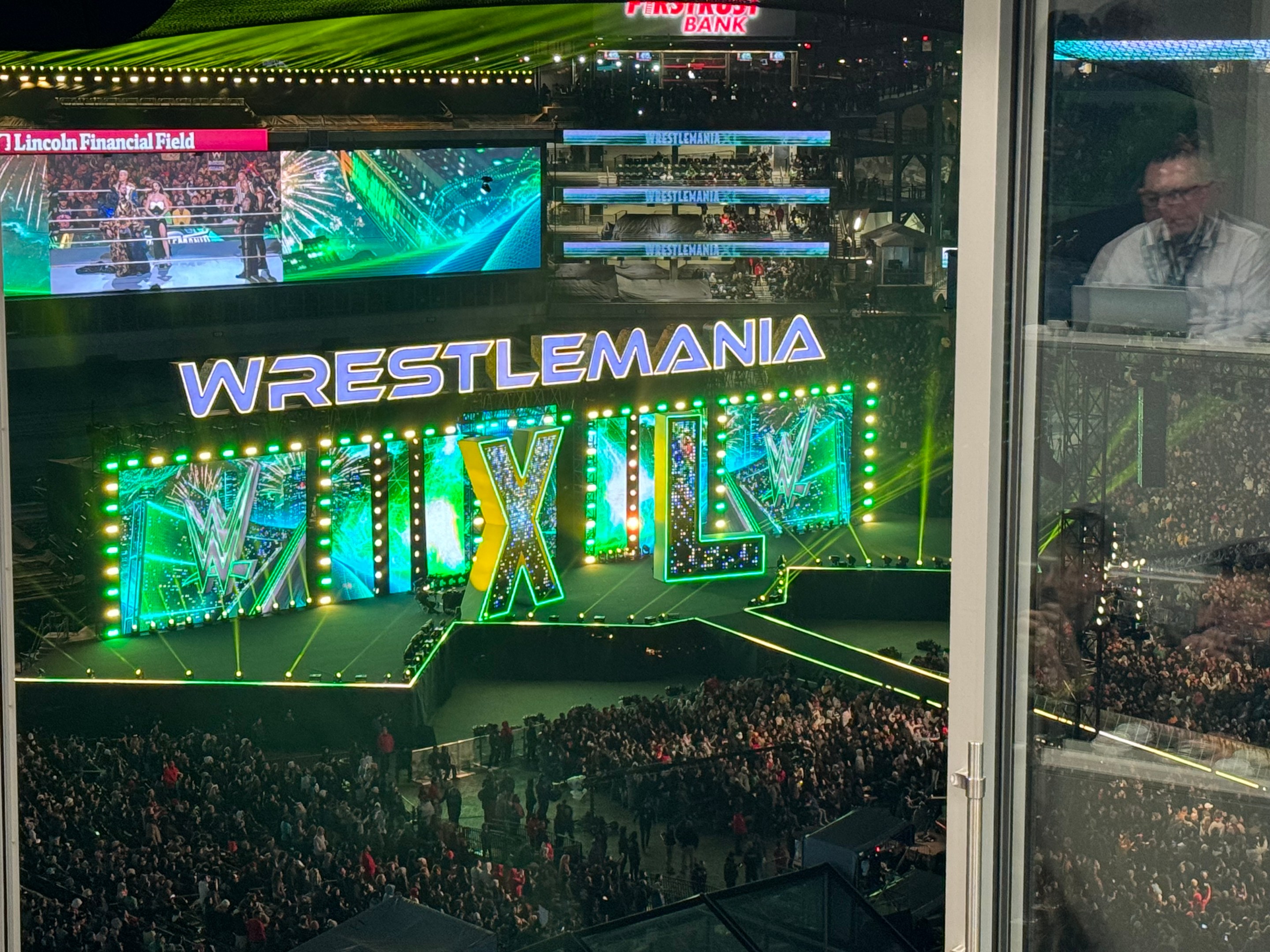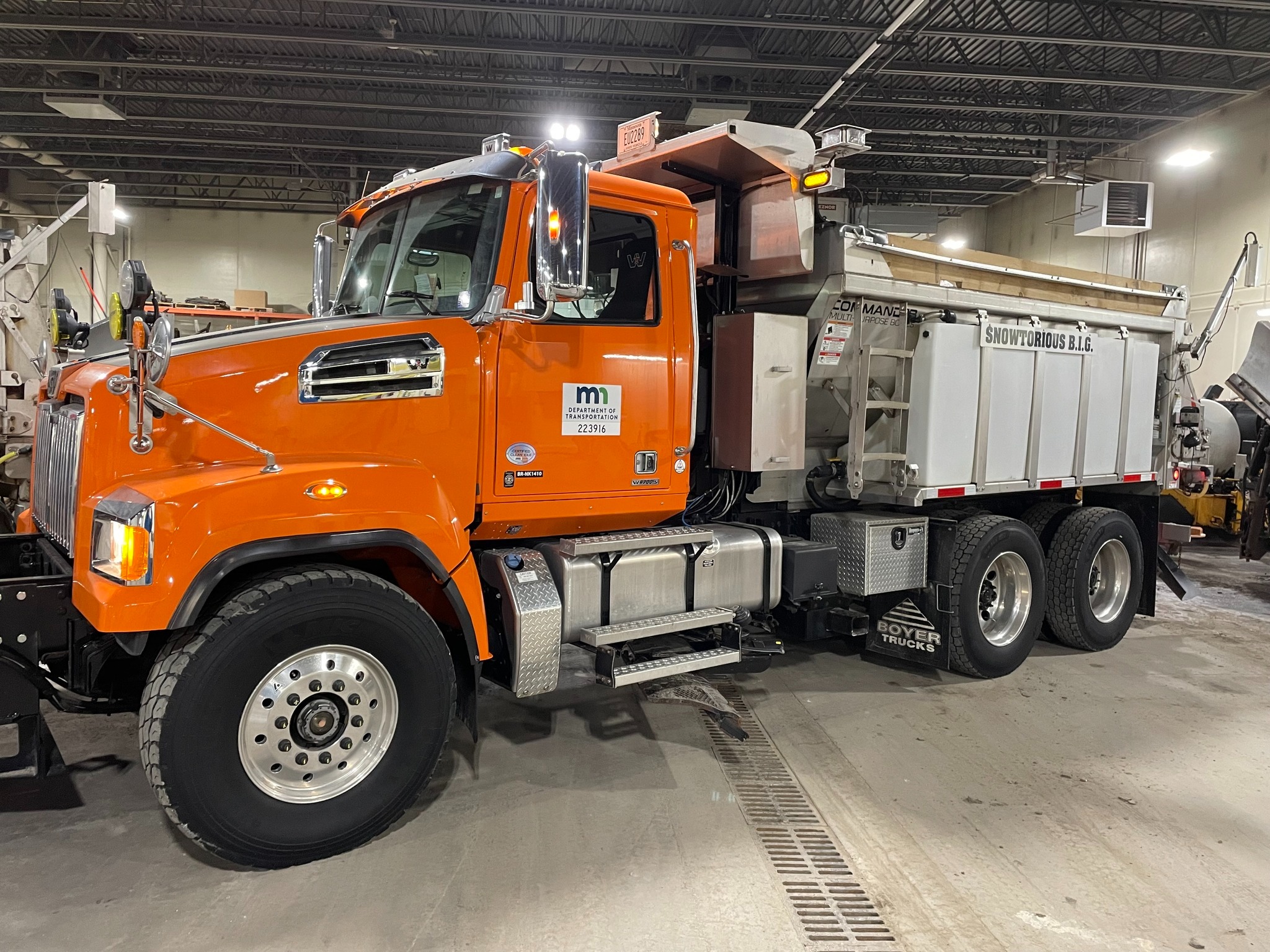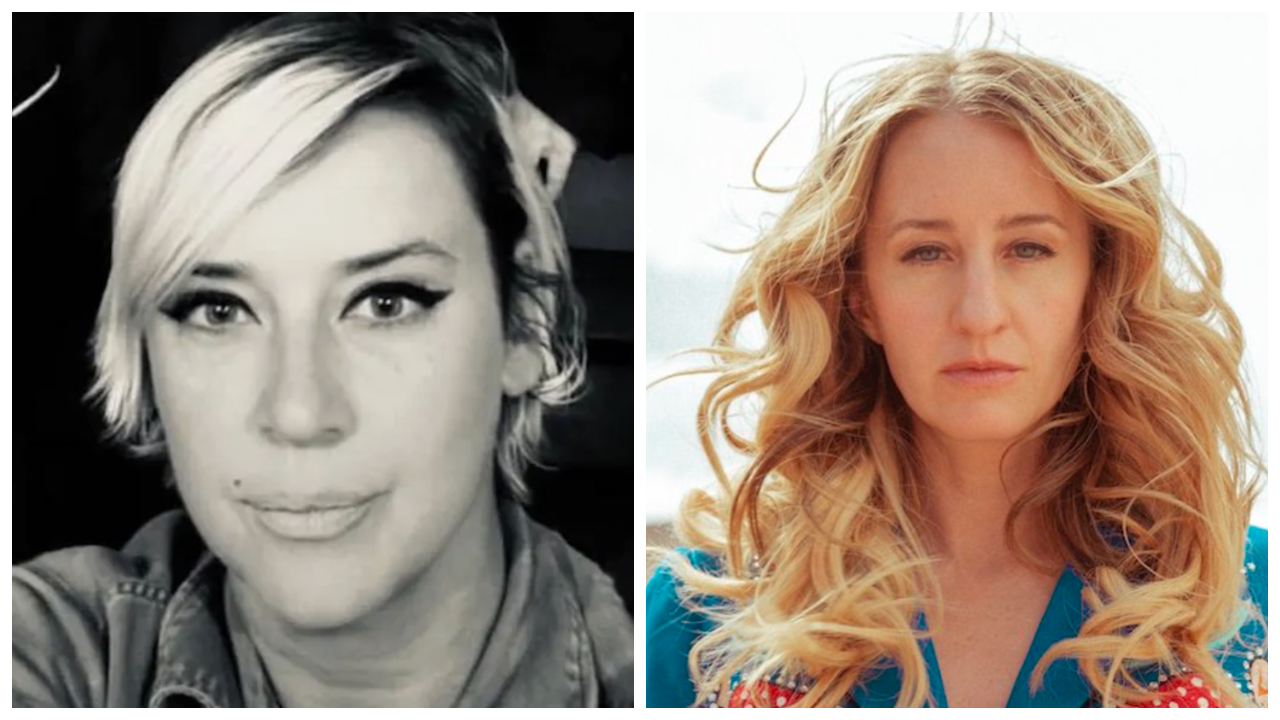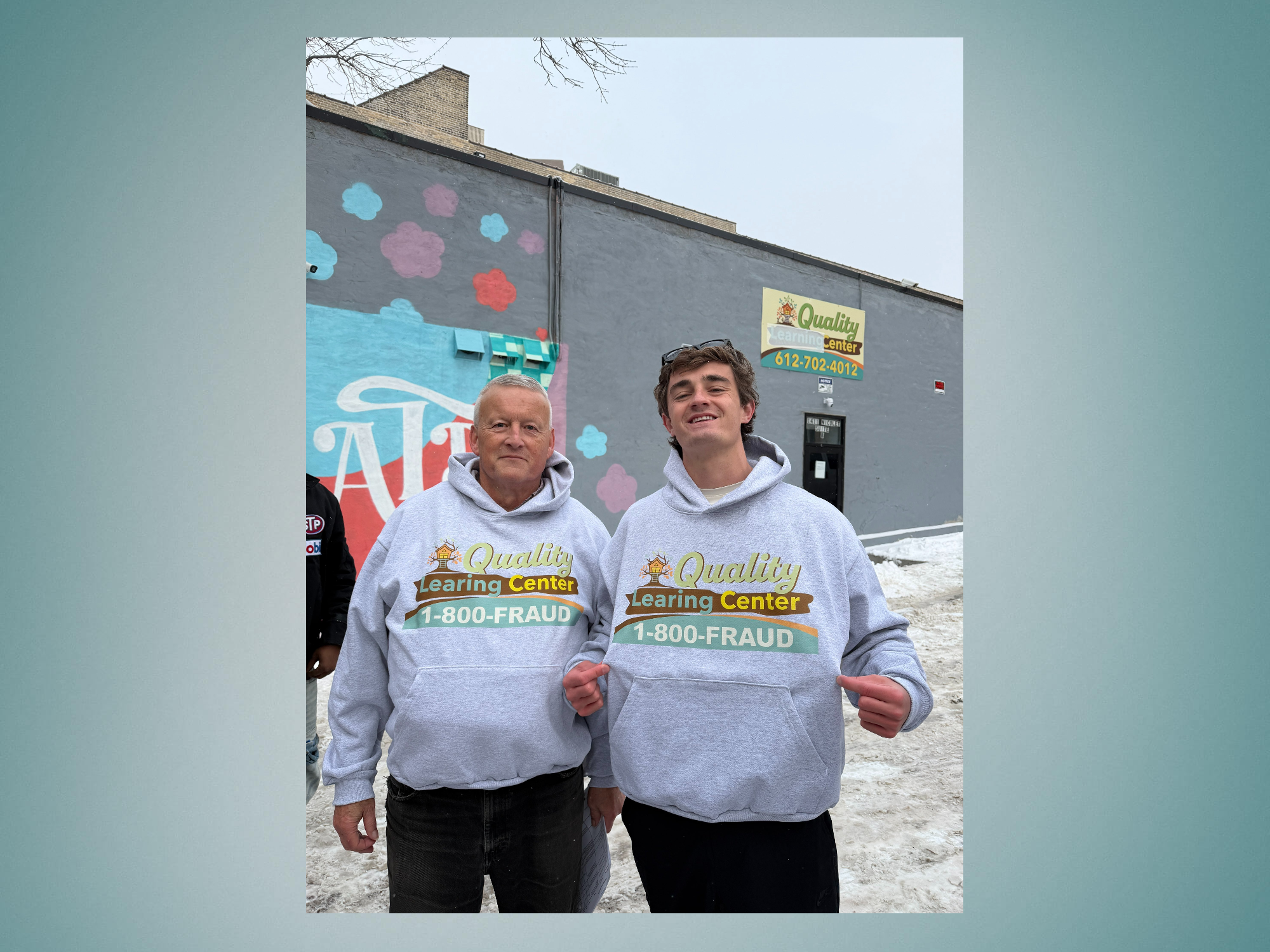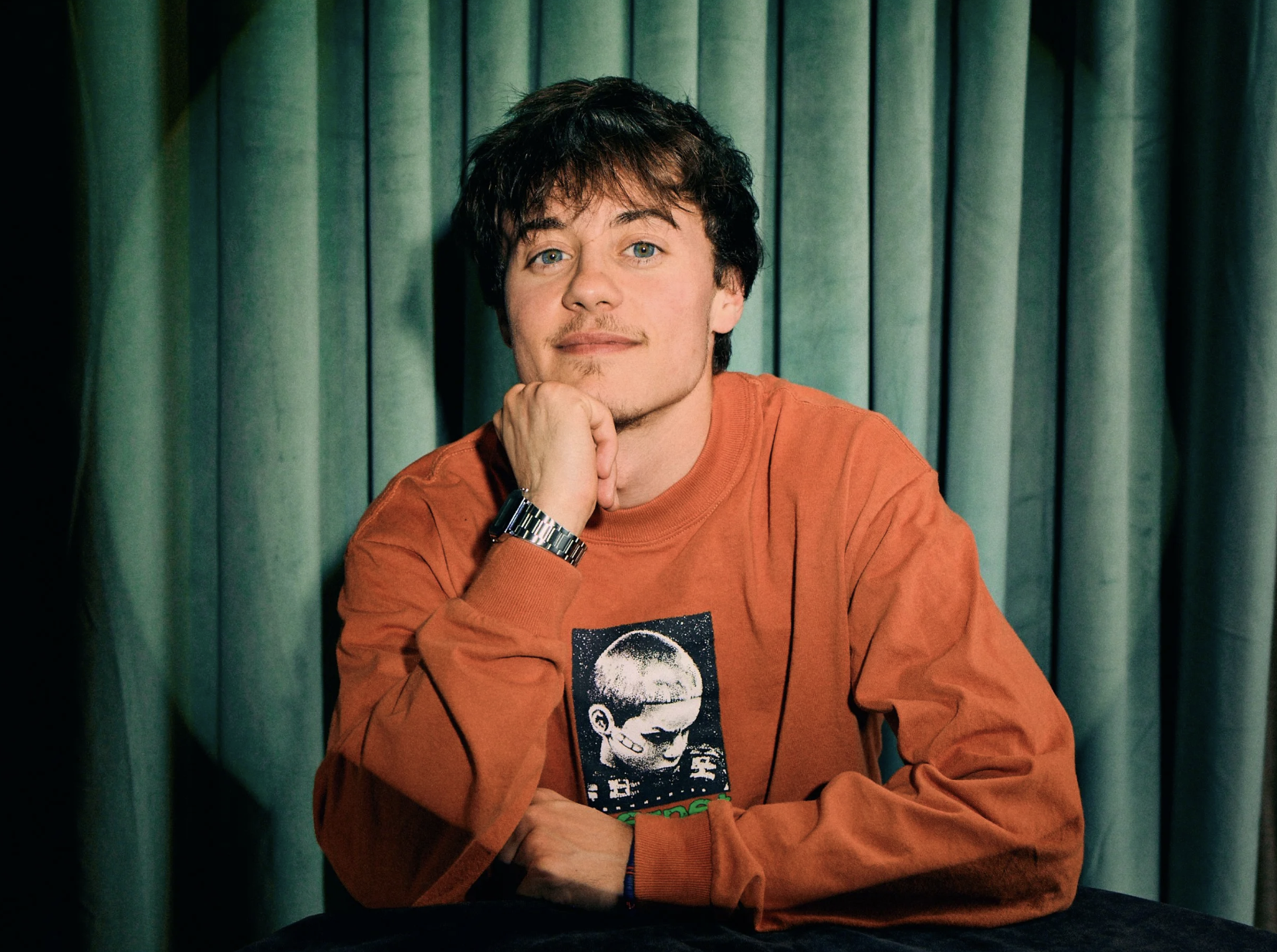Wendy Blackshaw, the CEO of Minnesota Sports and Events—the regional sports commission for Minneapolis, St. Paul, and Bloomington—told a Legislative committee this spring that the commission was preparing to announce something that would “produce an economic impact second only to the Super Bowl.” She later confirmed that she was referring to WWE’s WrestleMania.
“We have been told we are a finalist city—beyond that, we do not know timing,” Blackshaw tells Racket.
That Minneapolis is on the shortlist for 2025 is a big deal: It would be Minnesota’s first-ever WrestleMania, the biggest wrestling event of the year. While the following year’s host city is sometimes announced during the event, that did not happen at this year’s WrestleMania in Philadelphia.
“Various reliable reports say internally in WWE there is belief Minnesota was a leading candidate for next year or the year after,” says Wade Keller, the founder/editor of the wrestling news site Pro Wrestling Torch and a Twin Cities resident. (WWE president Nick Khan said last week that Las Vegas is also a finalist but did not announce a decision.) “It's a bit strange, though, that it hasn't been announced yet, as WrestleMania 40 weekend would have made the most sense or else right afterward. And now we're [more than] two weeks past that.”
WWE’s WrestleMania isn’t just massive in the wrestling world. It’s also one of the biggest annual athletic events, full stop, bringing sellout crowds from around the world to NFL stadiums for back-to-back nights of piledrivers and powerbombs. WrestleMania used to be a one-night wrestling card on a Sunday night, but in recent years, it has more closely resembled Super Bowl week, with comparable crowd sizes. The announced attendance for two nights at this year’s WrestleMania in Philadelphia was over 145,000; some estimates had more than 200,000 people in town for the event.
And yes, of those 200,000, at least 195,000 are likely aware that wrestling is scripted. But they’re also willing to spend large amounts on travel, tickets, hotel rooms, and memorabilia, including those huge championship belts that wrestling show attendees can be seen lugging around. And that makes WrestleMania an economic engine for its host city.
WWE’s weekly shows, Raw and Smackdown, also typically occur at arenas in the host city; the annual WWE Hall of Fame induction ceremony is also held that week. (Per Blackshaw, U.S. Bank Stadium would host the main WrestleMania event, with Smackdown and Raw at Target Center.) Various other events, including the WWE World fan fest and press events, also occur at the local convention center.
In addition to WWE’s events, many independent wrestling groups often hold unofficial wrestling cards at smaller venues throughout the week and memorabilia shows, wrestler appearances, and other non-sanctioned WrestleMania events. In Philadelphia, an outdoor ring was set up for matches on South Street, while independent cards were also held at smaller, far-flung venues in the suburbs and New Jersey. It’s not hard to imagine F1rst Wrestling and Fargo’s Time Bomb Pro Wrestling conducting a similar citywide takeover in Minneapolis.
“Neat weekend in Philly,” journalist Dan McQuade wrote via Twitter. “You could meet Bushwhacker Luke in the room where I had my senior prom and see a Punjabi Prison Match in the room where my girlfriend had her senior prom.”
A Minnesota WrestleMania would also be a chance to honor the state’s rich pro-wrestling tradition. The Philadelphia event repeatedly paid tribute to ECW, the influential 1990s-era wrestling promotion that was based in that city, with the promotion’s former boss, Paul Heyman, leading the WWE Hall of Fame class. There were also cameos by local celebrities, including the Eagles’ Jason Kelce and Lane Johnson and the Philadelphia Mummers String Band Association.
The historical wrestling promotion most associated with Minnesota is the American Wrestling Association (AWA), a Midwestern competitor to the then-WWF for decades before it closed in 1990. Of course, that was much further in the past than ECW’s heyday, and far fewer of the AWA’s stars are still alive or active.
Still, a long list of prominent retired or deceased professional wrestlers are natives of Minnesota—both Road Warriors, “Mr. Perfect” Curt Hennig, Ravishing Rick Rude, Bob Backlund, announcer “Mean Gene” Okerlund, and many others—while Ric Flair lived in Edina for part of his childhood. Many other significant wrestlers, including Hulk Hogan, passed through the AWA; Hogan returned to Minnesota in 1995 for the first episode of WCW Monday Nitro, held at the Mall of America, which has since hosted other wrestling events. (The Hulkster opened his short-lived pasta restaurant, Pastamania, inside MOA that same year.)
Regarding local color, we could see some current Vikings or Timberwolves make appearances, or even Twins great Kent Hrbek, who frequently spoke throughout his baseball career about wanting to try his hand at pro wrestling. He never did, unless you count the WWE-style move he pulled on Ron Gant in the 1991 World Series. Eagles Kelce and Johnson, before their WrestleMania appearance, put in some time at a wrestling school in New Jersey; here in Minnesota, maybe we’d get to see Naz Reid taking bumps at The Academy.
Two longtime WWE stars, Roman Reigns and Brock Lesnar, signed with the Vikings at different times, although neither ever played in a regular season game in purple. At WrestleMania 31 in 2015, the two ex-Vikings faced off in the main event for the WWE title, with the team's official account even tweeting about it at the time. In fine Vikings tradition they somehow both lost the championship.
Lesnar, a Gopher alum who won a national championship in amateur wrestling, is currently sidelined after he was mentioned in the sexual harassment lawsuit from former WWE staff member Janel Grant that ended the career of longtime head Vince McMahon. The suit alleged that "McMahon instructed Grant to create personalized sexual content for a WWE superstar that he was trying to re-sign." The Wall Street Journal later identified the "superstar" as Lesnar, although Lesnar is not a defendant in the suit. At a press conference at this year’s WrestleMania, WWE Chief Creative Officer Paul Levesque said Lesnar is “not gone” from the company, so there’s a chance he could resurface before next spring.
Several other current WWE wrestlers, including Chad Gable, Damon Kemp, Gable Steveson and Tiffany Stratton, are Minnesota natives, and a return to their home state would possibly surface as a storyline for them should WrestleMania come to town. Stratton, a Prior Lake native, said in a recent podcast interview that she hopes the event comes to Minnesota, and that she could square off against Charlotte Flair, the daughter of Ric.
Such storyline plans, however, remain a long way off.
And, of course, there’s Jesse Ventura. Minnesota is the only state to elect a former professional wrestler as its governor. While Ventura, who served as governor from 1999 through 2003, has had a tumultuous relationship with WWE over the years, he appeared as a special referee at the 1999 SummerSlam event at Target Center during his first year as governor. (Click here to read our recent interview with The Body, which touches on his THC use to manage the physical pain associated with pro wrestling.)
Carol Castle, the founder and director of the Minnesota Wrestling Hall of Fame, believes Ventura would likely have some involvement in a Minnesota WrestleMania.
“We need Jesse Ventura,” says Castle, who lived in Brooklyn Park when Ventura was mayor, before his election to the governorship. “If it comes here, I want Jesse to be the ‘official mayor’ of Wrestletown… we need him to lead.”
“Definitely I'd expect Jesse Ventura to get attention,” Keller says. “There aren't a lot of AWA legends available for appearances anymore, but I'd [expect] Greg Gagne to get an invite to appear, perhaps Baron Von Raschke.
“Certainly there'd be talk about the AWA,” Keller continues. “There’s a ton of pro wrestling history at the corner where Xcel Energy Center sits, since the St. Paul Civic Center was on that site and the home to the pre-WWF rise of Hulkamania. The Roy Wilkins Auditorium next door could be the site of some WrestleMania weekend activities and there's a ton of pro wrestling history there.”
The primary function of the Minnesota Wrestling Hall of Fame, which honors both pro wrestling and amateur wrestling, is to “highlight and draw attention to Minnesota wrestlers… and bring wrestling into the community.”
“I feel we are the epicenter of wrestling,” Castle says, referring to the state and noting that the governor declares each August as Minnesota Wrestling History Month. Castle added that as a child, she once developed ulcers due to stress caused by an AWA storyline in which Verne Gagne was double-crossed by wrestling villains, including “Handsome” Harley Race.
It’s unclear if anyone with Minnesota wrestling history might be in line for a WWE Hall of Fame induction. Ventura is already in the Hall, as are the AWA’s late boss, Verne Gagne, the Road Warriors, and former AWA champions Nick Bockwinkel, Curt Hennig, Maurice “Mad Dog” Vachon, Larry Zbyszko, and Jerry “The King” Lawler. Baron Von Raschke, however, is not. Perhaps WWE would posthumously induct some long-ago AWA stalwart like The Crusher.
“We want WrestleMania,” Castle says, noting that she has been in touch with people in the local wrestling community about possible plans for independent shows and other events. “We want to be like a week or 10 days of fun. We want meet-’n’-greets; we want… our own little travelogue that we can publish on Facebook.”
Pro wrestling in Minnesota has come a long way since Verne Gagne and Wally Karbo promoted the territory in the 1960s and ’70s with an old-school philosophy that relied on stars with nicknames like The Crusher, the Bruiser, and the Crippler.
Those men might not recognize the modern-day WrestleMania, where everything is much bigger: the venues, the crowds, the spectacle, and the wrestlers themselves. But with all of its multifaceted wrestling tradition, the Twin Cities seems a natural fit for wrestling’s biggest week.
